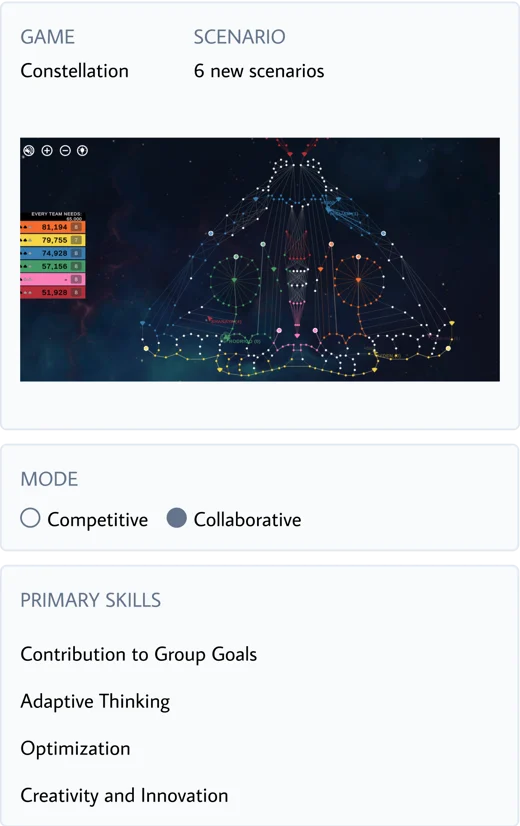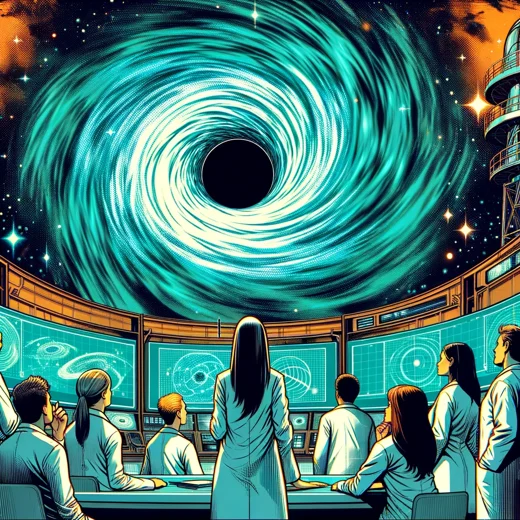1月29日~2月4日 | Jan 29 – Feb 4
我们为您的孩子准备了一系列新颖的挑战和讨论,希望能在本周享受到乐趣。
We have a new, exciting slate of challenges and discussions for your child to enjoy this week.
请记住,我们有一个新的游戏活动时间,每周六从PT时间下午4点至5点(北京时间周日早上7~8点)——期待见到您的孩子。
Remember that we have a new Play session time from 4-5PM PT on Saturdays. We hope to see your child there.
游戏 | Play
星座 | Constellaion
详情 | Details
本周的主题是“经济”,学生们将需要将这一概念应用于他们玩星座的方式。
This week’s theme is “economize”, and students will have to apply that concept to the way they play Constellation.
本周学生将进行协作情景,与同一组同学一起度过整个课程,共同解决复杂的挑战。随着课程的进行,情景中将会有越来越少的“剩余”空间,迫使小组在放置方块时非常经济,确保彼此协调,以最大程度地连接并完成任务。
Students will be playing collaborative scenarios this week, spending their entire session with the same group, working through sophisticated challenges. Scenarios will have less and less “leftover” spaces as the session progresses, forcing groups to be extremely economic in their placement and making sure they coordinate with each other to maximize connections and complete the tasks.

游戏:星座
场景:6个新场景
模式:⚪竞争 🟢合作
主要技能:
小组目标
适应性思维
优化选择
创造与创新
GAME: Constellation
SCENARIO: 6 scenarios
MODE: ⚪Competitive 🟢Collaborative
PRIMARY SKILLS:
Contribution to Group Goals
Adaptive Thinking
Optimization
Creativity and Innovation
反思 | Post-play
以下是一些后续反思问题,如果您希望与您的孩子讨论这次经历的话。
Here are some follow-up reflection questions, in case you’d like to discuss the experience with your child.
- 在两周玩“Batteries Not Included”之后,本周玩“Constellation”有何不同?
How was it different playing Constellation this week after two weeks of playing Batteries Not Included? - 一个游戏比另一个难吗,或者它们在不同的方面难以对比?是什么原因?
Is one game harder than the other, or are they hard in different ways? How so?
讨论 | Discussions
害中取其轻 | The Least Bad Option
大多数时候,我们的决策都集中在如何将“最好的”与“其他的”分开上。但当所有选择都不理想时怎么办?那么您会选择哪个选项?在本周的情景中,学生们将扮演科学、环境政策、城市发展等领域的决策者。他们将看到,有时最困难的部分不是找到最佳选择,而是选择对环境造成最小伤害的选项。
Most of the time, our decisions focus on how to separate “the best” from “the rest.” But what happens when all the options are bad? Then which option do you choose? In this week’s scenarios, students step into the shoes of decision-makers in science, environmental policy, urban development, and more. They’ll see that sometimes, the hardest part isn’t finding the best choice, but rather, choosing the option that does the least harm.

